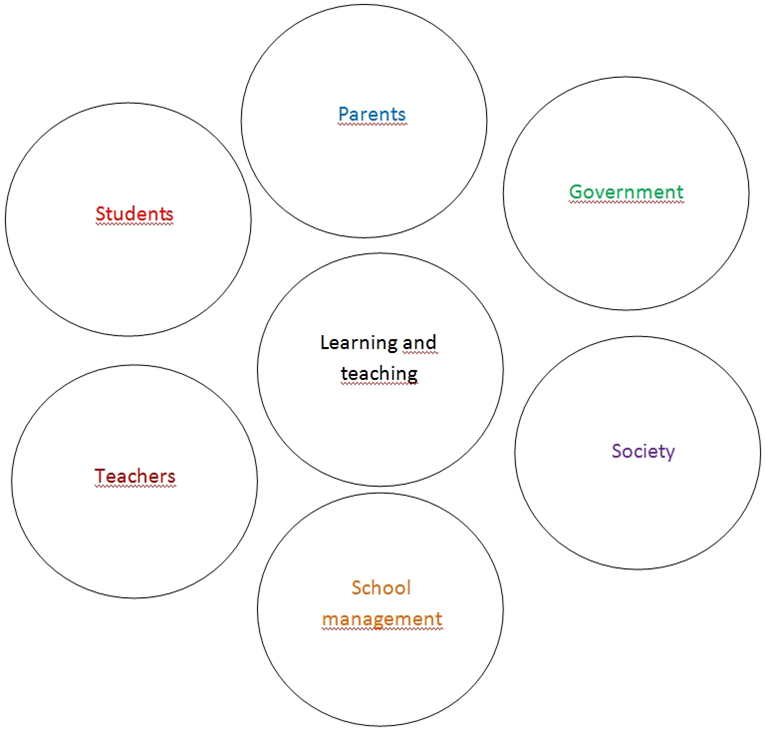
Source: N Brown
In a previous post I hinted at the variety of factors that are at play in a classroom that have a strong impact on teaching and learning. Here is a brief graphic that demonstrates influencing factors, which include for example students, parents and society as a whole.
Therefore, in teacher training sessions, there is often a heavy focus on where you teach and what the school is like that you work in: the educational context. Whilst it makes perfect sense to know your audience, there are times where you have to ask yourself if your focus on the educational context is healthy or not.
Exploring the educational context:
Typically, in teacher education you will be asked to look at statistics of your school, such as the number of pupils, the kind of intake, thus the background of your pupils, the number of pupils on free school meals and on the special needs register, the number of pupils that learn English as an additional language and the number of pupils that are recognised as gifted and talented. You may also be given copies of the school prospectus and Ofsted reports, which, too, will inform you about the characteristic features of your school. All this information put together will offer you a pretty good picture of what you can expect and of how you should be teaching.
Obviously, if many children in your class are from multicultural backgrounds and learn English as an additional language your teaching methods need to be different to the class that has a high number of gifted and talented pupils. In this respect the educational context really matters.

Source: N Brown
However, the picture from above does not tell us the entire story, as each of the separate sections influence each other, too. Depending on parental or societal developments for example, the government may respond with specific strategies, which in turn influence learning and teaching in your class. A graphical representation must therefore be messier.
Ultimately, though, you have to ask yourself about the relevance of the educational context as a whole.
The educational context does not always matter:
The danger relating to the exploration of the educational context lies with stereotyping. It is just all too easy to categorise pupils according to some of the information you may have. For example, bad behaviour could easily be considered connected to the socio-economic status of pupils and their families. And that is why the educational context should not be overrated. Ultimately, as a teacher you should have high expectations of your pupils and you should value their individuality. Your aim is to teach pupils and you should do so free of any biases. Therefore, you should really be critical of how you use statistics and information that is available to you, and perhaps from time to time try to tell yourself that the educational context does not matter.
hi!!
i found this blog very informative.i would like to read more suggestions from you pon education. keep sharing information with us.
regards
Jackstace
Hello,
Very fascinating and serviceable blog… I will share this article with my friends. Keep posting…
Thank you very much, and please feel free to make some suggestions for topics to post, too.